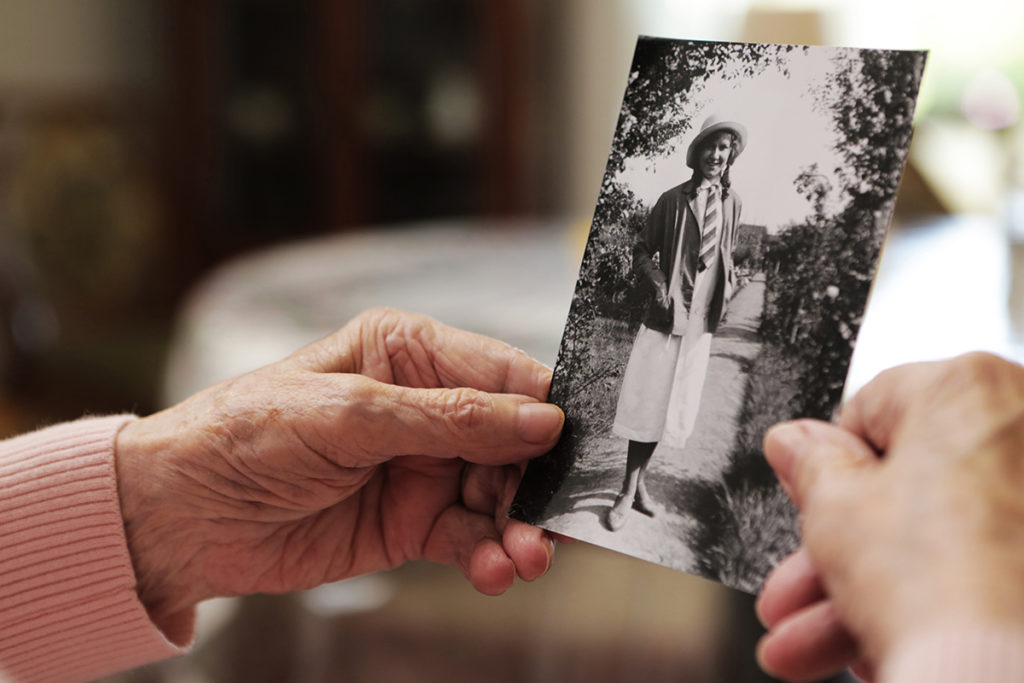5 Signs Your Loved One Requires Memory Care

6,000,000 Americans are living with Alzheimer’s disease. Alzheimer’s is responsible for killing more people than pancreatic cancer breast cancer combined.
If your loved one has dementia, memory loss issues, or Alzheimer’s disease, it is critical to get the proper care they need.
11,000,000 Americans today are caring for a family member who has Alzheimer’s. But unfortunately, many families hit a breaking point when it becomes apparent that their loved one needs full-time memory care service.
If you are one of those family members and you are at that point right now, or you are wondering if time is soon approaching, here are five signs your loved one requires memory care.
Signs it’s time for memory care
1. Behavior changes
If your mother had a self-reliant spirit but now does not want to engage on her own, this is a likely sign of changed behavior. Likewise, if your father used to play Bonko every week with the guys but no longer wants to, or used to enjoy working in the yard but doesn’t even want to go outside anymore, these are changes in behavior.
Changes in behavior are often a sign of Alzheimer’s or dementia. If you have noticed a notable change in what has previously been normal behavior in your loved one, it might be time for them to look into full-time memory care.
2. Disoriented and confused
Does your loved one forget where they are or get lost or confused regularly? Then it is time to look into full-time memory care.
Dr. Elaine Healy, a renowned Geriatrician, says when this confusion and disorientation begin to pose a threat to the safety of your loved one that this becomes a concern. She continues, “When your loved ones are continually putting their physical safety at risk, it’s time to consider memory care.”
3. Incontinence
A sign that your loved one requires memory care is when they struggle to control their bladder because it means they forget to go to the bathroom regularly.
Incontinence also indicates a need for full-time memory care because of the pressure this can put on a non-professional caregiver. Dr. Raymond Scott Turner, professor of neurology and director of the Memory Disorders Program at Georgetown University, says, “[At-home caregivers] feel overwhelmed, they feel it’s more than they can handle, more than they signed up for.” This “caregiver stress” makes the situation more strenuous for everyone and is detailed below.
4. Declining health
Memory loss doesn’t just impact the brain; it affects the entire body. For example, your loved one could be forgetting to eat or take their medication. As a result, maybe they fall more easily or injure themselves more regularly.
If your loved one is suffering from declining physical health, it’s likely time to seek professional memory care assistance.
Physical symptoms of memory loss include poor hygiene, hunched-over posture, weight loss, and often breaks or bruises on the skin.
5. Caregiver anxiety or stress
Many caregivers are family members juggling a lot of balls in the air from taking care of their parents, work obligations, and looking after their own children or grandchildren. That is a lot to handle, especially considering it is a full-time job caring for a parent or close family member with memory loss.
If the anxiety and stress affect your mental health, close relationships, or even your physical health, you must seek professional memory care. Unfortunately, we have seen instances where older caregivers are killing themselves in an effort to provide care for their spouses with memory loss issues.
A Diagnosis when it’s time to consider Memory Care
Once your loved one receives an official dementia or Alzheimer’s diagnosis, it’s time to begin looking into full-time memory care. This may seem premature to you, but as this article says, studies show that transitioning someone with a memory loss diagnosis into a facility before their symptoms compound is better for them in the long term. This is because they can make decisions about care from a more coherent state and, therefore, will feel less frustrated or confused than they would if they were moved elsewhere after their symptoms intensified or worsened.
Deciding your loved one needs memory care is a hard decision. At Bader House, we are here to help you make that decision as informed as possible.
We pride ourselves in offering Uncommon Care to those with memory loss. Our locations are not just assisted living centers. Our homes are communities where the staff is expertly trained in memory loss and how to care for those who have it.





